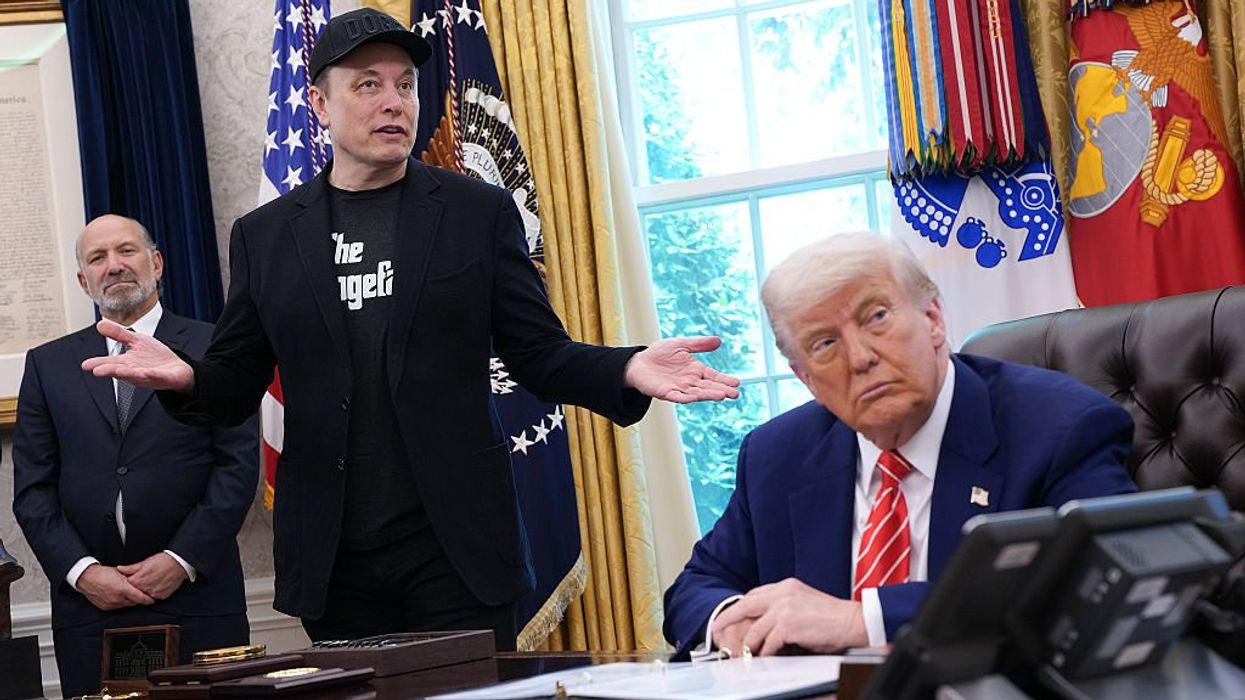The recent breakup, breakdown, and reconciliation of President Donald Trump and Elon Musk is on full global display. It’s the kind of relationship chaos many hope to never experience. But if you know, you know.
Here is the short version: two work partners got into a disagreement and said hurtful things. The one with his name on the lease kicked the partner out on the streets. In fits of rage, each turned to social media and proceeded to drag each other through the mud by sharing either dark secrets or disparaging accusations. Then they apparently make up: Musk apologizes and Trump accepts.
While opinions about this “bromance” were trending, this is a case study anyone can observe in real time about how economic security affects relationships and what domestic violence prevention and communal healing look like.
In this case, economic security was highlighted as a threat of perceived scarcity through a threat to remove “billions and billions of dollars in governmental contracts” by Trump from Musk.
In a more commonly relatable relationship, economic security is the ability of individuals, families, or communities to meet their basic and essential needs consistently and sustainably. It encompasses a feeling of stability and safety regarding finances, including the ability to afford essentials like food, shelter, and healthcare, as well as the capacity to plan for the future and manage debt.
Economic security or the fear of losing that—particularly for families—is one of many contributing factors to why people stay in unhealthy and abusive relationships. In the United States, far too many children are maltreated or exposed to domestic violence. Researchers estimate that between 3.3 million and 10 million children are exposed to adult domestic violence annually.
This is important because nearly half of all women and many men experience domestic violence. It is critical to discuss domestic violence like the public health problem it is. Equally important to note is the ridiculous stigma that surrounds domestic violence as if it is not a public health and economic issue that affects someone every person knows—whether they are aware of it or not.
According to the U.S. Department of Justice, domestic violence is a pattern of abusive behavior in any relationship that is used by one partner to gain or maintain power and control. This includes but is not limited to physical, sexual, emotional, economic, psychological, or technological actions or threats of action.
With this breadth of a definition, there are various ways to personally experience this kind of abuse.
In the Trump-Musk case, there was economic abuse, threats of action, and social media harassment. There was also a black eye displayed by Musk, who blamed it on his child. Again, this is common in domestic violence cases.
In the worst cases of domestic violence, there is psychological and physical violence (although it is greatly underreported). Research shows that financial abuse is present in 99 percent of domestic violence cases, according to the National Network to End Domestic Violence. If economic security affected billionaires, imagine the struggle between couples who rely on one another to split rent or support children.
In California, domestic violence is estimated to cost $73.7 billion dollars for survivors, communities, and taxpayers.
As a survivor and advocate, my call to action is beyond moral support, it's also to encourage courageous conversations in an intentional effort to de-stigmatize the topic and recognize the role everyone can play. There are no innocent bystanders, only silent witnesses.
As a society, there is a desensitization to violence with constant access to uncensored media. However, it is wrong to let that prevalence turn into acceptance. When it comes to domestic violence and economic security, the true cost is immeasurable—the shattered lives, the emotional scars, and the cycle of violence that perpetuates through generations.
Instead of making jokes or memes about the latest high-profile epic feud—it is critical to use this opportunity to seek alternatives. If you or someone you know is in an unhealthy or abusive relationship, it is important to simply check in on them or be there when they request support.
On a bigger scale, there is work being done to prioritize financial security as a means to end intimate partner violence. Sharing resources such as safety plans can be both tangible and support additional conversation.
For violence intervention, agencies and funding do this work but one of the easiest lifts regarding prevention is education and informative dialogue.
I didn’t leave until my situation became extremely violent because I was raised by my grandparents and didn’t know what a healthy intimate relationship was supposed to look like. I had a child before I had that knowledge. Now, as an adult, I am responsible for having these conversations with my son about healthy relationships to end the cycle of abuse.
The world is waiting to see if the Trump-Musk relationship does hold, or if they split up again. In the meantime, everyone can learn from their experience and put a wedge in the cycle of violence.
Monica EO'Mailani Flores is a survivor, and supporter of community well-being and a Public Voices Fellow of The OpEd Project on Domestic Violence and Economic Security.




















